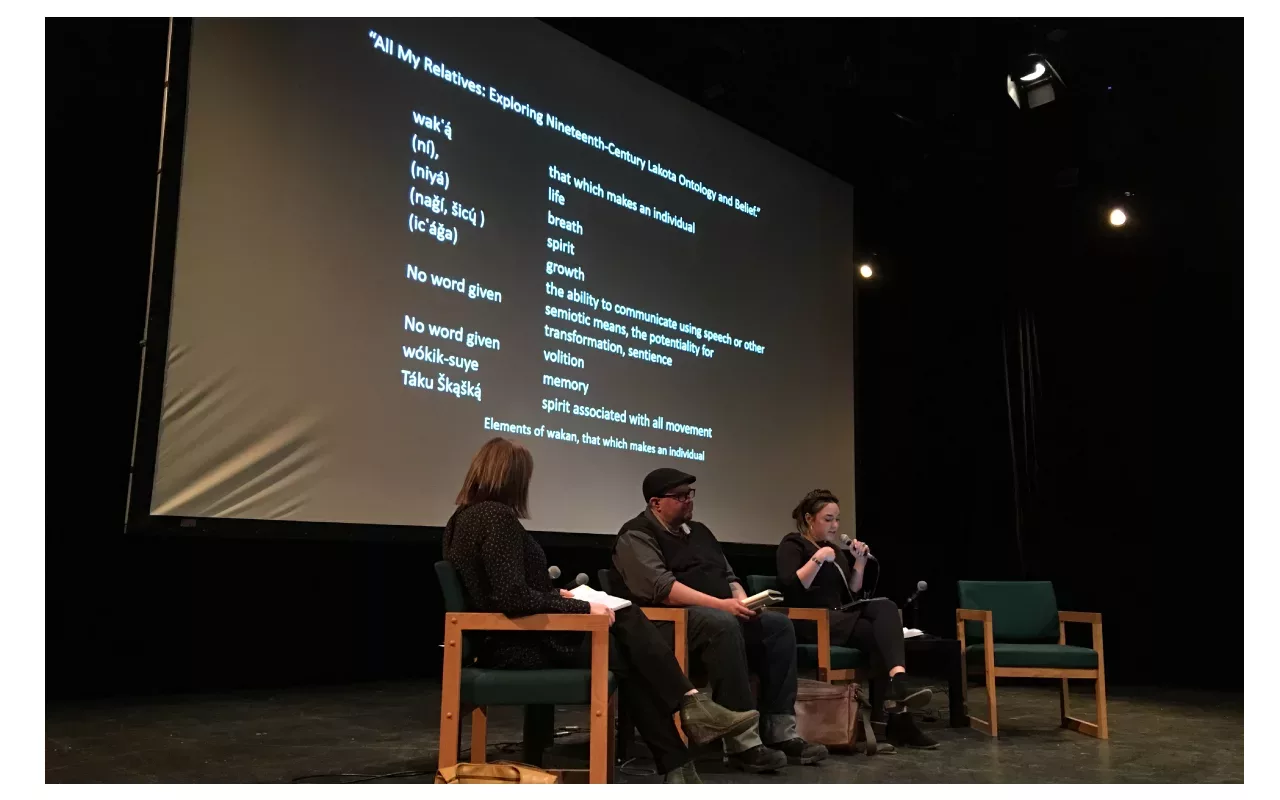
This symposium brings together a group of cutting edge artists working with new technologies to discuss and share their experiences, their practices and their perspectives on algorithms, artificial intelligence and machine learning. It will be an exchange of ideas among them and with the public, and we hope to articulate a unique artistic perspective on the pressing conversations unfolding around our new machine collaborators.
Sunday, February 18th
10AM–6PM
Arts Court Theater
2 Daly Ave
(piece includes one image, “Image Credit: Ben Bogart, “Through the haze of a machine’s mind we may glimpse our collective imaginations (Blade Runner)” — 2017 (Detail of frame #6266))
Please check out the video documentation here
Confirmed participants include: Sofian Audrey, Ben Bogart, Kristin Anne Carlson, Chris Salter, Jackson 2Bears, Allison Parrish
This winter Artengine brings together artists and curators to discuss art in the age of algorithm. As the sophistication of algorithm technology has developed, our collective imagination about artificial intelligence has once again caught fire. The wildfire is not without a spark in reality as research and technology in this expanding field has undergone incredible advances in recent history. There are the dramatic effects on financial industries from adaptive autonomous trading technologies; the development of self-driving cars; personal assistants embedded into your mobile device and your home; increasingly complex automated delivery of treatment by medical technologies, and the list goes on.
From an artistic perspective, there is, of course, a desire to explore the creative potential of any new technologies, teasing out the playful dimension of advanced developments, but many feel that there is much more at stake in these particular technologies and the changes they may usher into our lives. What is art in a time of computer assisted creativity? Is it any different than it was before? Or before before?
Art at its best offers an experience that is both of this world and out of it. A space seemingly almost out of time in which some of the most fundamental questions about ourselves find resonance. The complicated conversation around artificial intelligence is both exhilarating and frightening, often at the same time. The symposium will add an artistic perspective to consider AI and the dialogue unfolding around it. For instance, what is the nature of these ‘intelligent’ things being made? What kind of world are we going to make with them? But also what role do artists have in authoring these new ‘intelligences’?
Susan Kite and Jackson 2Bears, moderated by Elizabeth Barron.
The first theme of the conference will consider the relationship between cosmology and electronic and digital technologies. How are histories and cultural ways of knowing and thinking embedded into certain tools? How do artists engage and subvert these embedded cultural elements? If machines are learning, who are they learning from?
Kristin Anne Carlson, David Rokeby and Chris Salter, moderated by Nell Tenhaff
Our second panel will address notions of the body, sense and consciousness. If our body is essential for our perception of the world, what happens to the perception of an intelligent thing without a body or at least a distributed body? What does creative movement and expression look like when it is authored by an intelligent machine? Whether as a thing separate from us or as something we wear or even something inside us, can and/or how do we co-create with an intelligent machine?
Ben Bogart, Sofian Audrey and Allison Parish, moderated by Nora O’ Murchú
The third conversation of the day is focused on acts of consciousness and the machine. With much resources invested in the instrumental or problem solving aspect of artificial intelligence and machine learning, what do we make of the useless parts of the technologies? Scientific thinking tends towards an explanatory model of the universe where everything can be known, but what role does creativity have in a world where everything is known? Will an AI machine be able to recognize its own poetry? Perhaps most importantly, can machines dream and will those dreams matter to us?